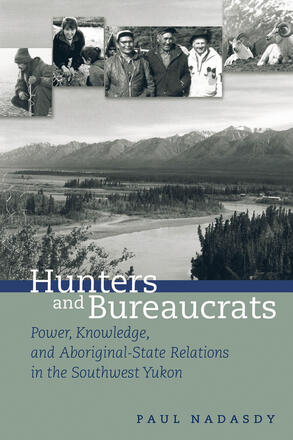
Hunters and Bureaucrats
Power, Knowledge, and Aboriginal-State Relations in the Southwest Yukon
A timely anthropological examination of the effect of land claims settlements and co-management of resources on the Kluane First Nation of the Southwest Yukon.
La description
This book challenges this conventional wisdom that land claims and co-management — two of the most visible and celebrated elements of this restructuring the relationship between Aboriginal peoples and the Canadian state — will help reverse centuries of inequity. Based on three years of ethnographic research in the Yukon, the author examines the complex relationship between the people of Kluane First Nation, the land and animals, and the state. This book moves beyond conventional models of colonialism, in which the state is treated as a monolithic entity, and instead explores how “state power” is reproduced through everyday bureaucratic practices — including struggles over the production and use of knowledge.
Reviews
At first blush, it seems a very long reach from the aboriginal hunting camps of the Kluane in Canada’s Yukon wilderness to the poststructuralist environs of modern French philosophy. Yet careful reading of Paul Nadasdy’s prodigal new work of contemporary ethnography reveals that geographically, culturally, and philosophically the distance involved is much less than might be expected.
- William Hipwell, Department of Geography, Kyungpook National University, South Korea
The book is well written and carefully argued. Nadasdy draws effectively on the seminal ethnography and ethnological work of the Penn Boasians: Frank Speck, A. I. Hallowell, and their many informal students, and his own ethnographic observations are revealing and apt.
- David Dinwoodie, University of New Mexico